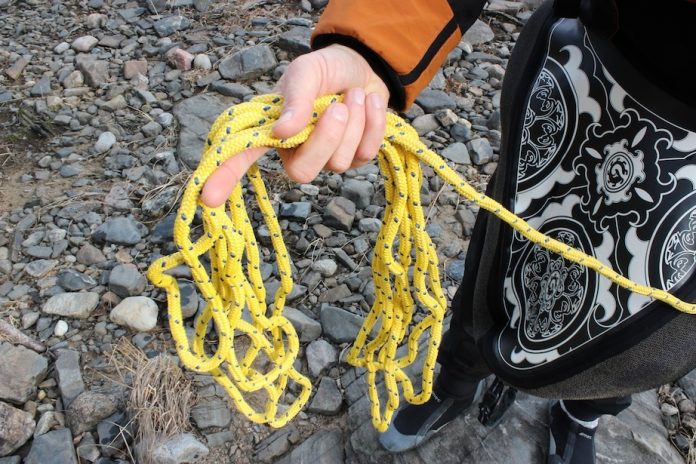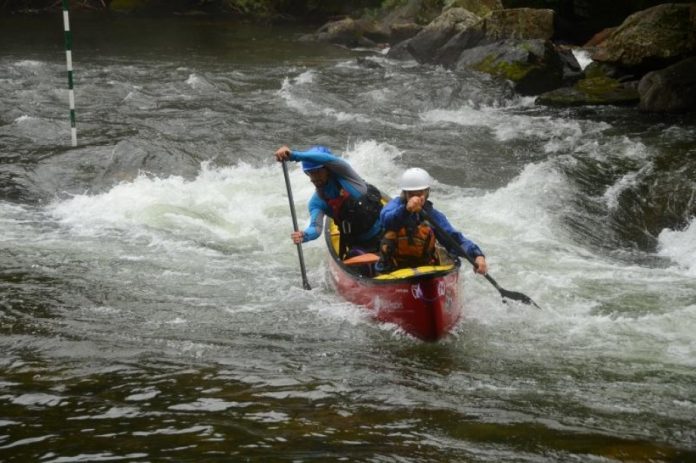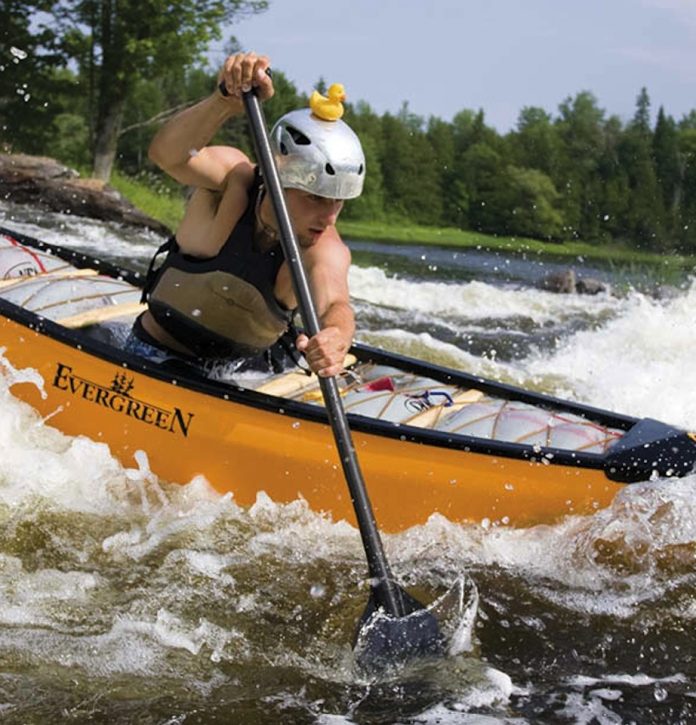Ideally, your throw bag hits its target the first time. Even so, there are situations when throwing a coiled rope is called for, like multiple swimmers or a failed first attempt.
You want to avoid having your coil look like a bird’s nest. The secret is keeping the motion of the rope to a minimum. Do this by coiling to the hand you throw with and keeping your throwing arm as still as possible. If throwing with your right hand, your left retrieves the rope and brings it to the right hand. Avoid switching a coil from hand to hand, which usually results in tangles.
Many paddlers prefer a standard coil where each loop is in the same direction—think hanging up a garden hose on a hook. Another option, the butterfly coil, has paddlers alternating between placing the rope in the throwing hand with thumbs parallel and pointing in opposite directions, then in the same direction. Repeat the pattern back and forth until coiled and you’ve got equally sized butterfly wings draping on either side. Be sure your throwing hand remains still; it’s the retrieving hand that is in motion. I’ve tried both, you’re less likely to create potentially limb-trapping loops with a butterfly coil.
Other things to consider: small rope tangles more easily than larger diameter rope; you only need to coil enough rope to reach your target before throwing it; and don’t allow any rope to get wrapped around you. Just as practicing your aim is important, practice your coiling technique so you can coil and toss when it counts.












